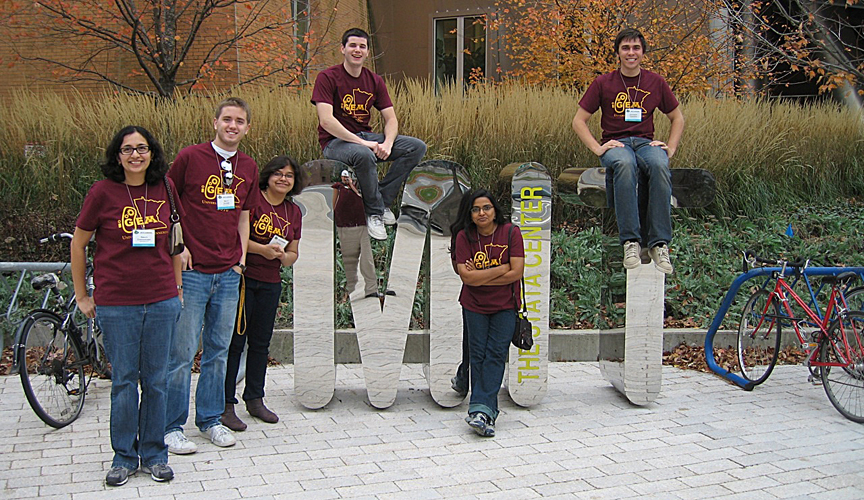Team:Minnesota
From 2010.igem.org
| (11 intermediate revisions not shown) | |||
| Line 8: | Line 8: | ||
!align="center"|[[Team:Minnesota/Notebook|<font color="gold">Notebook</font>]] | !align="center"|[[Team:Minnesota/Notebook|<font color="gold">Notebook</font>]] | ||
!align="center"|[[Team:Minnesota/Judging|<font color="gold">Judging Criteria</font>]] | !align="center"|[[Team:Minnesota/Judging|<font color="gold">Judging Criteria</font>]] | ||
| + | !align="center"|[[Team:Minnesota/Attributions|<font color="gold">Attributions</font>]] | ||
!align="center"|[[Team:Minnesota/Safety|<font color="gold">Safety</font>]] | !align="center"|[[Team:Minnesota/Safety|<font color="gold">Safety</font>]] | ||
|} | |} | ||
| Line 16: | Line 17: | ||
We are a team of undergraduate students along with many faculty and post-doc advisors. This is the third year that Minnesota has sent a team to iGEM. | We are a team of undergraduate students along with many faculty and post-doc advisors. This is the third year that Minnesota has sent a team to iGEM. | ||
| - | + | [[Image:MN Igem10 team.jpg|center]] | |
| - | + | ||
| + | Team Minnesota take won a gold medal and the Best Natural Part Special Prize at iGEM 2010!! | ||
| + | |||
<b>Metabolic Engineering: In vivo Nanobioreactors</b> | <b>Metabolic Engineering: In vivo Nanobioreactors</b> | ||
| - | Modern microbial engineering methods allow the introduction of useful exogenous metabolic pathways into cells. | + | Modern microbial engineering methods allow the introduction of useful exogenous metabolic pathways into cells. Metabolism of certain organic compounds is sometimes limited by the production of toxic intermediates. Several bacteria have evolved protein based microcompartments capable of sequestering such reactions, thus protecting cytosolic machinery and processes from interference by these intermediates. For our iGEM project, we have cloned (and expressed in E. coli) Salmonella LT2 genes responsible for the production and assembly of ethanolamine utilization microcompartments. Additionally, we have determined a signal sequence that targets an ethanolamine utilization enzyme to the microcompartment and verified this by fusing the sequence to GFP and observing that this causes the GFP reporter to localize to the compartment. We conclude that recombinant microcompartments housing targeted enzymes can function as in vivo bioreactors with high reaction efficiencies. |
| + | |||
| - | |||
<h2>Highlights for the Judges</h2> | <h2>Highlights for the Judges</h2> | ||
| - | Judges! Please navigate to our [ | + | Judges! Please navigate to our [[Team:Minnesota/Judging|Judging Criteria]] page for a comprehensive list of UMN's fulfilled medal requirements and links throughout the wiki. |
{|align="center" cellpadding="25" | {|align="center" cellpadding="25" | ||
|[[Image:UMNSponsors.png|300px|center|frame|Sponsers]] | |[[Image:UMNSponsors.png|300px|center|frame|Sponsers]] | ||
| - | |||
| - | |||
Latest revision as of 19:32, 10 December 2010
| Home | Team | Project | Protocols | Notebook | Judging Criteria | Attributions | Safety |
|---|
 "
"


